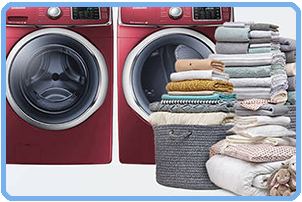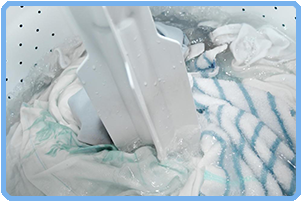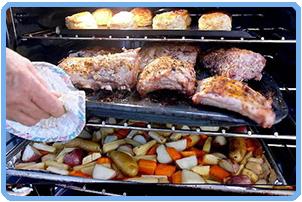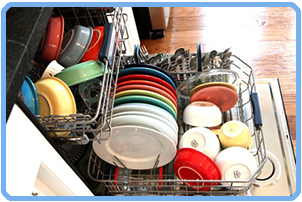Appliance Energy Saving Tips & Information
A significant portion of a homeowner’s expenses come from utility costs. If you practice the below appliance energy conversation tips, you can save money monthly on your utility bill. These tips will also help to reduce your environmental footprint.
Refrigerator Energy Saving Tips & Info
- Keeping a well stocked freezer can help store cold air which helps to reduce the work of your refrigerator.
- Your refrigerator should be positioned outside of direct sunlight and away from other heat sources.
- Be aware of how much you are opening the freezer doors. When cold air is released from your refrigerator through opening the door, your refrigerator is forced to work harder.
- Using multiple refrigerators at once can be costly. One refrigerator can cost between $70-120 to run in one year.
- Clean dust buildup that collects around the condenser coils.
- Optimal energy conditions for your refrigerator should between 36-40F and the freezer between 0-4F.
- Hot food should be allowed to cool off before being put in the refrigerator — this will help to decrease the strain of overworking your refrigerator.
- Your refrigerator should seal tightly. If the seals aren’t tight, they may need replacement.
- Don’t place your refrigerator in a part of the house that is unheated. If the temperature goes below 60F the refrigerator will be forced to run much more.
- Placing food on the back wall of your refrigerator can cause the cooling cycle to malfunction.
- Defrosting your refrigerator if there is frost buildup will help to make things function properly.
Dryer Energy Saving Tips & Info
- Try not to overload your dryer — However you should also avoid washing small loads.
- Your lint filter should be cleaned before each use.
- Drying your clothes separate from heavy items such as towels will help to decrease dry time.
- You should periodically analyze the dryer vent to ensure its not obstructed.
- You should dry multiple loads consecutively. This will allow the heat from the previous load to help the next dry time.
- Utilize the moisture-sensing feature if your dryer has one, this will keep the dryer from running longer than necessary.
- Make sure your dryer hose is short to ensure there are no kinks. This will ensure the best efficiency for dying.
- Your dryer should be in a well ventilated area to operate the most efficiently.
Washing Machine Energy Saving Tips
- Make sure the water level is set to allow for washing of the amount of clothes placed in the washing machine.
- If your washing machine is placed close to your water heater, this will reduce the heat lost from water during the transfer from the pipes.
- When possible, use cold water to wash your clothes.
Oven / Stove / Range Energy Saving Tips & Info
- If cooking multiple items in the oven, it’s most efficient to cook them all together.
- You should avoid opening the oven door if possible as this causes the oven to release heat and causes the oven to work harder. There is an interior light in most ovens.
- Your oven’s temperature should be tested. If the temperature isn’t accurate, you’ll need to re-calibrate.
- Keep your stove clean to ensure no debris is captured in heat.
- If possible, you should use a microwave rather than an oven because they use less energy and don’t heat up your kitchen as much.
- Use the correct cookware. Certain materials such as cast iron can retain heat better than most. You should also use a lid when possible.
- If you’re using an 8-inch burner, an 8-inch pan should also be used.
- Your oven should be sealed tightly to ensure no heat is lost during operation.
- If you start with a higher heat, you should change to a lower setting as you finish cooking.
Dishwasher Energy Saving Tips & Info
- Try to run a full load of dishes every time as your dishwasher uses the same amount of power regardless of load.
- Use the air dry option rather than heated dry — or just open your dishwasher door after the cycle and let the dishes dry on their own.
- In warmer months, opt to use your dishwasher during cooler parts of the day.
- Excess debris should be cleaned from your dishes before being placed in the dishwasher.
- Some dishwashers have their own energy-saving cycle, utilize this if possible. If there is a filter, clean it regularly to ensure efficiency.
When Purchasing a New Appliance
- Newer models use energy more efficiently than newer models.
- Less energy is used by smaller appliances (especially true for freezers and refrigerators).
- Top-loading washing machines tend to use more energy than front-loading washing machines.
- Top-loading washing machines without an agitator will operate more efficiently than those with an agitator, but this design comes at a premium cost.
- Side-by-side refrigerators usually use more energy than conventional refrigerators.
- Compare energy costs using EnergyGuide ratings.
We’ll be glad to answer any questions regarding these tips! Feel free to call us at (281) 973-7040 or e-mail us.



